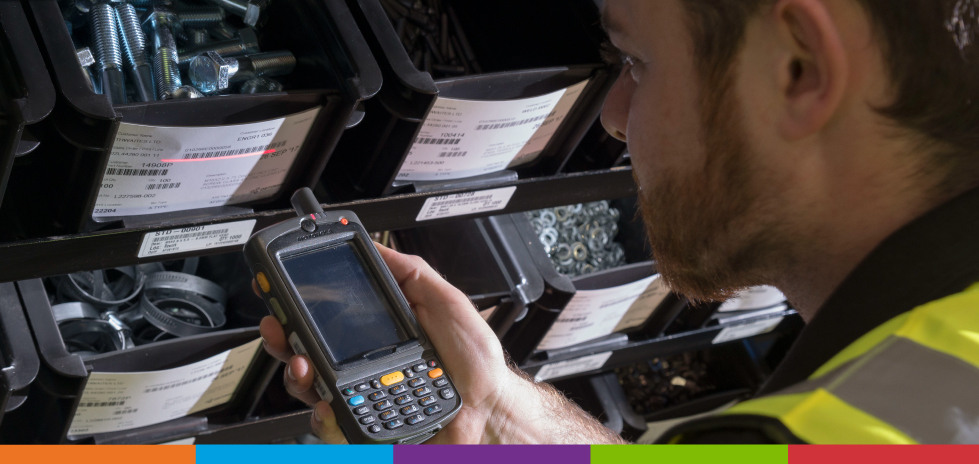
Soluzioni di fondo: crea un'esperienza contrattuale vantaggiosa per tutti
Una supply chain sana può aiutare a stabilizzare un'azienda anche nelle economie più difficili. Per molte aziende, il 2020 ha inferto un duro colpo ai loro profitti inserendo un livello di incertezza nelle operazioni quotidiane che pochi avevano mai sperimentato. Molte aziende hanno dovuto affrontare nuove sfide in termini di personale e produzione, oltre a requisiti di lavoro a distanza e protocolli di sicurezza aggiuntivi. Alcune aziende hanno incontrato una domanda mai vista prima, mentre altre hanno visto il crollo della domanda e sono state sopraffatte da un arretrato di inventario.
Whether your business is booming, vulnerable, or you're hanging on by a thread, making good decisions about your bottom line can accelerate growth and inject certainty back into your operations.
"Manufacturers are always looking for ways to increase their bottom line by finding and eliminating deficiencies in the supply chain. And this has never been more true or relevant than in the past year," says Jim Japczyk, Chief Financial Officer for Optimas.
There's no quick fix to re-strengthening the supply chain. It will take time and not every company will come out better, but for those that do, it can start by reaffirming the trust of your suppliers and your customers.
- I tuoi contratti sono sani come potrebbero essere?
- Invocano un senso di fiducia nelle tue partnership nuove ed esistenti?
- Can you sign on the dotted line knowing it's a win-win opportunity?
"Contracts provide an extra boost of certainty in business — an enterprise where you really want certainty," Japczyk advises. "The less you have to worry, the better. And if you can extend that certainty, that trust, beyond your business and into the supply chain, that benefits everybody. You never want to be the reason a customer's production line goes down and a healthy, well-intentioned contract can go a long way in ensuring everything runs smoothly."
What's the difference between a contract you could regret on Day 1 and a contract that allows for all parties to be well-represented?
Rebecca "Riv" Goldman is Senior Vice President and General Counsel for Optimas and responsible for streamlining our contracting process while reducing risk. As she suggests, "in a lot of ways, contracts are just contracts. They are legally enforceable pieces of paper. What elevates a partnership is often what you and your future partners do in the lead-up to signing the contract and how you communicate once the contract has been signed."
The team here at Optimas has accumulated decades of experience in all types of business partnerships along the parts supply chain and we are confident that our experience can assist your business in crafting a contract all parties are comfortable with. While there aren't many "secrets" behind contracts, the best ones work to include fairness and understanding to all parties.
Here's how your next contract — and all the ones that follow — can become your migliore contrarre.
Entra nelle trattative contrattuali con gli occhi ben aperti
Non tutte le aziende avviano trattative contrattuali nello stesso luogo. Sulla scia della pandemia, sono sorti tre nuovi mal di testa della catena di approvvigionamento che probabilmente influenzeranno la produzione futura e le relazioni a monte ea valle della catena di approvvigionamento per gli anni a venire.
- Il business orfano: These businesses were left high and dry as suppliers went under. Depending on the company's size, one broken link in the chain can shut down an entire production line. This can have catastrophic consequences in the short-term and potentially no long-term future to speak of.
- Il business vulnerabile: Now your business is the one scrambling. Instead of being left out in the cold by someone else, internal issues are causing you to hinder production for your customers. Whether it is processes, systems, efficiencies, talent, or financial, you're no longer standing on solid ground and your partners are feeling it too.
- L'impresa forte: Some businesses are doing as well or better during the pandemic than they were pre-2020. For them, it's about pulling ahead of a struggling competitor, uncovering new opportunities, and solidifying a reputation as a partner fidato della catena di fornitura. Il mal di testa qui diventa non fare abbastanza e sapere che ti lasci sfuggire una possibilità di crescita tra le dita.
"Each of these headaches present a unique risk — but they also present opportunities for stronger, healthier contracts if you can identify the situation you and your partners are in," explains Japczyk. "By understanding where each business is, you can craft a contract that helps everyone. That means communicating now and in the future is top priority."
Coinvolgi le persone giuste
In Optimas, sosteniamo l'importanza delle persone come spina dorsale di qualsiasi sforzo aziendale e ciò include il processo di sviluppo del contratto.
"Don't think of the creation of a contract as a one-person job — due to its scope, it shouldn't be, and due to its importance, you don't want it to be," says Goldman. "Contracts are like any other process in a business where you are going to want multiple eyes on it."
Chi coinvolgerai dipenderà dalle dimensioni della tua attività e dalla complessità del contratto. Per la maggior parte delle aziende di medie dimensioni, questo include il team esecutivo, il team legale e il team finanziario. Può anche includere vendite e acquisti, operazioni o ingegneria. Se disponi di specifici responsabili della catena di approvvigionamento o altro personale chiave, potrebbero essere coinvolti anche loro.
Comprendi gli intangibili di un contratto vantaggioso per tutti
Contratti sani indicano imprese sane e i contratti più sani sono quelli che danno priorità alle esigenze di tutte le parti.
"Much like any marriage, a contract between two businesses should allow this new partnership to be stronger than the sum of its parts," offers Japczyk. "Contracts can help determine costs, price points, technologies, customer service, lead times, and capabilities. They can also help you respond to future unforeseen challenges that arise and, in the event the partnership does have to end, can help eliminate any hard feelings during the separation."
Ecco solo alcune delle caratteristiche intangibili dei contratti sani:
- Equità per tutte le parti: You don't need to insert some type of "gotcha" clause to have a winning contract. What you sign today will create a partnership you may rely on for years or more. Ensuring fairness for all parties eliminates a lot of potential bad feelings that haunt a partnership later.
- Anticipazione del cambiamento: Le circostanze cambiano e ciò che ha reso valido un contratto quando lo hai firmato potrebbe non esistere qualche anno dopo o dopo il cambio di leadership. Se la relazione deve finire o se deve solo essere risolta, le protezioni sono integrate affinché tutti possano uscire dall'altra parte di una negoziazione con garbo.
- Confini incorporati: Pensa a quelle cose che accadranno sicuramente, ma sono al di fuori del controllo di entrambe le parti, come il prezzo delle materie prime. D'accordo su un indice credibile. Quindi consentire ai prezzi delle parti di fluttuare coerentemente con le variazioni dell'indice.
- Flessibilità e una via per la comunicazione: Just because you've signed a contract, doesn't mean you need to be locked into that specific agreement. So much of business is about adapting to change and your contracts should similarly reflect that. Write your contracts with the understanding that something down the road could impact it and provide a process for amending the agreement if necessary.
- Chiarezza: You shouldn't have to have an MBA and 20 years of legal experience to decipher a contract. While contracts are legally enforceable, they should be written so that anyone from the C-suite and your legal team to other participants can clearly understand the agreement being made.
- Pene e ramificazioni comprese: Entrambe le parti traggono vantaggio dal sapere cosa può accadere - e cosa possono fare entrambe le parti - nel caso in cui qualcuno si allontani dall'accordo. Può variare da una multa a una separazione completa o può richiedere un certo livello di rinegoziazione.
"Optimas has been focusing on these areas for all of our contract development efforts," explains Goldman. "By building these intangibles into every contract, we — Optimas and all of our contract partners — start off in a better place and we usually stay in a better place. It's not about winning the negotiation, it's about creating a circumstance where all sides win and all sides can enjoy open communication and greater business success."
Evita le ovvie bandiere rosse
La maggior parte dei leader aziendali con qualche anno alle spalle può ricordare una brutta esperienza contrattuale. Può lasciare un sapore crudo in bocca, sfiducia nella tua mente e persino una riluttanza a perseguire collaborazioni future che potrebbero giovare alla tua attività.
"Nobody wants to feel like they are being taken advantage of, feeling forced into some agreement, or regretting a decision down the road," says Japczyk. "Sometimes bad contracts are because of things you can't control, but a lot of times, I've found, it's because one party ignored some obvious red flags from the start."
Ecco alcune bandiere rosse comuni: considera di correre per le colline, o almeno di comunicare le tue preoccupazioni, se le trovi nella tua prossima bozza di contratto:
- Documentazione scarsa: Non riuscire a documentare completamente l'accordo tra il fornitore e il cliente può essere il precursore di futuri malumori. È fondamentale che ciascuna parte comprenda ciò che deve all'altra e ciò che si aspetta da tutti i soggetti coinvolti.
- Un labirinto di omologazioni: I contratti che includono molte approvazioni per quelli che dovrebbero essere passaggi regolari possono sottolineare un accordo eccessivamente complesso e irritante. Le approvazioni richiedono tempo e, invece di aggiungere valore, possono ostacolare i lavori e bloccare collaborazioni altrimenti redditizie.
- Being asked to sign "unfinished" agreements: Contracts are legally enforceable and bad ones can ruin a company's bottom line. Avoid any agreement that opens the door for future things to be added to a contract that already has your name on the dotted line.
Pensieri finali
Indipendentemente dalla parte del contratto su cui stai lavorando, una buona trattativa si conclude solo quando tutte le parti sono soddisfatte.
"Healthy contracts ensure both parties are treated fairly," advises Japczyk. "It may sound cliché, but the best thing you can do is go into a contract negotiation with the original Golden Rule in mind. Do unto others as you want done unto you. When you construct a contract, aim to deliver one you'd still be happy to sign if you were in the other person's shoes."
Everyone wants to win when they sign a contract, but that doesn't mean any side has to lose. Win-win contracts are the foundation for great supply chain partnerships and a benefit to your bottom line.
Quando lavori al fianco di Optimas, lavori con un team in cui crede successo per tutti attraverso equità per tutti — with many of our most successful supplier and customer relationships dating back an average of 20 years. Is today the beginning of your company's next great business partnership? Inizia una conversazione con il nostro team e provaci!







